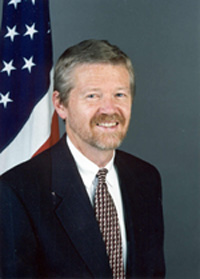
India, officially the Republic of India, has full diplomatic relations with 201 states, including Palestine, the Holy See, and Niue. The Ministry of External Affairs (MEA) is the government agency responsible for the conduct of foreign relations of India. With the world's third largest military expenditure, second largest armed force, fifth largest economy by GDP nominal rates and third largest economy in terms of purchasing power parity, India is a prominent regional power and a rising superpower.

The foreign relations of Laos, internationally designated by its official name as the Lao People's Democratic Republic, after the takeover by the Pathet Lao in December 1975, were characterized by a hostile posture toward the West, with the government of the Lao People's Democratic Republic aligning itself with the Soviet bloc, maintaining close ties with the Soviet Union and depending heavily on the Soviets for most of its foreign assistance. Laos also maintained a "special relationship" with Vietnam and formalized a 1977 treaty of friendship and cooperation that created tensions with China.

As of April 2022, Vietnam maintains diplomatic relationships with 189 UN member states, State of Palestine and Sahrawi Arab Democratic Republic. In 2011 the Central Committee of the Communist Party of Vietnam, at the 11th National Congress of the Communist Party of Vietnam, released an official statement about Vietnam's foreign policy and a section of the statement stated: "Vietnam is a friend and reliable partner of all countries in the international community, actively taking part in international and regional cooperation processes. Deepen, stabilize and sustain established international relations. Develop relations with countries and territories in the world, as well as international organizations, while showing: respect for each other's independence; sovereignty and territorial integrity; non-interference in each other's international affairs; non-use or threat of force; settlement of disagreements and disputes by means of peaceful negotiations; mutual respect, equality and mutual benefit."

The Catholic Church in Laos is part of the worldwide Catholic Church, under the spiritual leadership of the pope in Rome. The Catholic Church is officially recognized by the government.

Formal relations between the United States and Vietnam were initiated in the nineteenth century under former American president Andrew Jackson, but relations soured after the United States refused to protect the Kingdom of Vietnam from a French invasion.

The United States and Belgium maintain a friendly bilateral relationship. Continuing to celebrate cooperative U.S. and Belgian relations, 2007 marked the 175th anniversary of the nations' relationship.

Denmark–United States relations are the bilateral relations between Denmark and the United States of America. Both countries are members of the Arctic Council, OECD, OSCE, NATO and the United Nations.

Lithuania is one of the most pro-United States nations in Europe and the world, with 73% of Lithuanians viewing the U.S. positively in 2011. According to the 2012 U.S. Global Leadership Report, 48% of Lithuanians approve of U.S. leadership, with 20% disapproving and 32% uncertain.
U.S. President Barack Obama's East Asia Strategy (2009–2017), also known as the Pivot to Asia, represented a significant shift in the foreign policy of the United States since the 2010s. It shifted the country's focus away from the Middle Eastern and European sphere and allowed it to invest heavily and build relationships in East Asian and Southeast Asian countries, especially countries which are in close proximity to the People's Republic of China (PRC) either economically, geographically or politically to counter its rise as a rival superpower.

Douglas Alan Hartwick is a business and NGO consultant, lecturer, and former senior U.S. diplomat and U.S. ambassador to the People's Democratic Republic of Laos (2001–2004).

This is a summary history of diplomatic relations of the United States listed by country. The history of diplomatic relations of the United States began with the appointment of Benjamin Franklin as U.S. Minister to France in 1778, even before the U.S. had won its independence from Great Britain in 1783.

Indonesia and Laos established diplomatic relations in 1957. Indonesia has an embassy in Vientiane, while Laos have an embassy in Jakarta. Indonesia supported and welcomed Laos membership to the Association of Southeast Asian Nations (ASEAN) on 23 July 1997. Laos and Indonesia agreed to enhance relations to focus on exploring the potential of both nations to cooperate on trade and investment. The two nations expressed a desire to reach further agreements relating to security, tourism, sport, air transport and education. The two sides will also work together in cooperation with other ASEAN nations to ensure the ASEAN Community is established in 2015.

Brunei and Laos established diplomatic relations in 1993. Brunei has an embassy in Vientiane, and Laos has an embassy in Bandar Seri Begawan. Both countries co-operate in trade, education and defence.

Chile–Japan relations are the diplomatic relations between Chile and Japan. Both nations are members of the Asia-Pacific Economic Cooperation, Comprehensive and Progressive Agreement for Trans-Pacific Partnership, Forum of East Asia–Latin America Cooperation and the Organisation for Economic Co-operation and Development.

Laos–Turkey relations are the foreign relations between Laos and Turkey. Diplomatic relations at the legation level were established in 1947 and then to the rank of ambassador in 1958. It was not until December 27, 2017, however, that Turkey established a resident embassy in Laos’s capital, Vientiane.
The Embassy of the United States in Asunción is the diplomatic mission of the United States in Paraguay.














